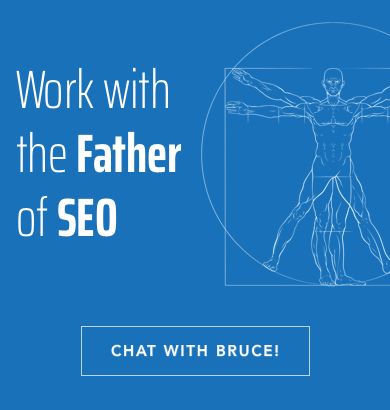SEO for Estate Planning and Probate Lawyers That Drives Results

Why SEO Matters
Estate planning and probate are deeply personal legal areas, and most clients begin their search during emotional or transitional life moments. Phrases like “will and trust lawyer near me” or “how to handle probate in [State]” are common search triggers. SEO ensures that estate planning firms appear at the top of these searches with compassionate, authoritative content. These clients are looking for guidance, reassurance, and clarity from the moment they land on your site.
Local visibility is especially important in probate law, as users often seek attorneys who know their local court systems. SEO helps you rank for region-specific terms and legal processes. When optimized correctly, your firm becomes the trusted digital resource for legacy planning and estate resolution.
What I Think
Estate planning SEO is about much more than just rankings—it’s about helping people find the right legal support during moments of vulnerability and transition. The person searching has often just lost a loved one or is trying to secure their family’s future. I believe your firm should meet them online with clarity, warmth, and professionalism. SEO is the tool that lets you do that at scale.
The more helpful and well-structured your site, the more trust you earn before the first call. Clients want reassurance that they’ve found someone who understands both the legal and emotional complexities of estate work. SEO makes sure you’re the one they find first—and feel best about choosing.
Primary SEO Tasks
Primary estate planning SEO is where your online strategy starts. This phase focuses on understanding what people actually search for—terms related to wills, trusts, probate, and estate planning—and turning those insights into strong service pages. Each page should clearly explain what you offer and answer the kinds of questions clients ask before they ever pick up the phone.
Keyword Research for Estate and Probate Services
Estate planning clients often search using emotional or practical phrases like “how to write a will,” “estate attorney near me,” or “probate help after death.” SEO begins by identifying these search terms and mapping them to dedicated service pages. Segment your keywords into categories like wills, trusts, probate, and guardianship. Long-tail keywords such as “how long does probate take in [State]” or “what happens if someone dies without a will” show high intent.
Research also helps uncover local variants like “estate planning lawyer [City]” or “probate court attorney [County].” Matching content to user language ensures higher rankings and better engagement. Keyword-driven strategy is the backbone of estate law SEO.
Building Service Pages for Every Estate Planning Need
Give each service its own page—wills, revocable trusts, irrevocable trusts, advance health care directives, powers of attorney, and probate. One page per practice area makes these services easier to find in search and easier for families to choose you. On each page, answer the questions people actually ask: “Do I need both a will and a trust?” “What’s the difference between an executor and a trustee?” Clear, client-centered content helps users navigate emotionally loaded decisions.
Use internal links to connect related services and guide user flow. Localize each page to show regional knowledge and improve map rankings. Granular pages improve SEO performance and client understanding.
Local SEO for Probate and Planning Services
Probate is location-specific, with court rules varying by city and county. SEO should target keywords like “probate lawyer in [City]” and reference your local courthouse or judge guidelines. Google Business Profile optimization is critical—use up-to-date categories, service descriptions, and local photos. Encourage client reviews that mention specific locations and outcomes.
Include service area pages for each region you serve, featuring location-based FAQs. Add structured data to help your site appear in map and local search results. Local SEO ensures you’re visible to those who need help in your jurisdiction.
Blogging About Life Events and Legal Transitions
Write for real moments—retirement, a new marriage, a divorce, a death in the family, etc. Answer the exact questions people type in: “What happens if I die without a will?” “Do I need to update my trust after divorce?” Keep it simple and kind. Link those posts to the matching service pages so readers know the next step. Share them by email and in local groups.
Implementing Schema for Legal and Local Markup
Add structured data like LegalService, FAQPage, and Review schema to increase visibility in search engine results. This helps Google understand your content and display it in rich features like “People Also Ask” or featured snippets. For local visibility, use LocalBusiness schema tied to your physical location and Google Business Profile. Add Attorney schema to bio pages for extra search coverage.
Structured data improves click-through rates and strengthens credibility. It’s a technical task with high SEO reward. Estate planning firms benefit greatly from being more visible and trusted in SERPs.
Conversion Optimization with Emotionally Sensitive CTAs
SEO traffic means nothing if your site doesn’t convert visitors into leads. For estate and probate, CTAs should be compassionate, reassuring, and action-oriented. Use messages like “Schedule a Confidential Consultation” or “Speak With a Probate Lawyer Who Understands.” Position CTAs early on pages, at content ends, and beside testimonials.
Add contact forms with minimal required fields for easier submission. Consider live chat or callback options for users who feel overwhelmed. Empathetic conversion strategies align with the emotional context of estate law.
Mobile Speed and UX Optimization for Multigenerational Users
Think phone first. Make pages load quickly, keep text large enough to read, use roomy buttons, and keep navigation obvious. Add accessibility basics—alt text, high contrast, and screen-reader support. Check your speed with Google PageSpeed Insights and fix whatever’s slowing things down. When the mobile experience feels smooth, people stay longer and are more likely to take the next step. Make your firm approachable and usable for every generation seeking estate help.
Secondary SEO Actions
Once the basics are in place, secondary estate planning SEO helps your firm stand out locally and stay consistent across platforms. This includes optimizing your Google Business Profile, building city-specific pages for probate or estate planning, and refining the details that make your site more visible in local search results. These actions strengthen your reach and connect you with clients nearby who are ready to call.
Google Business Profile Optimization for Local Estate Planning Searchesoogle
Your Google Business Profile is a cornerstone for attracting local clients searching “estate lawyer near me” or “probate attorney in [City].” Complete every section including service types, business hours, and high-quality images of your office or team. Use keywords like “wills and trusts,” “advance directives,” and “probate court help” in your description. Encourage client reviews that reference successful planning or probate outcomes.
Add Q&As for search-friendly phrases like “How long does probate take in [State]?” or “Do I need a trust?” Regular profile updates show Google and users that you’re active and trustworthy. Local optimization increases your presence in map packs and mobile searches.
Creating City-Specific Landing Pages for Probate Services
People often search by location— “probate attorney in [County],” “help with probate court in [City].” Create a page for each area and explain how that court works: timelines, forms, where to file, even which courthouse handles what. Add local detail (judges, filing windows, fees, basic stats) so it feels specific to that place. Use fresh, unique copy for every city. Link each page back to your main probate page, and include a short contact form with the right office and phone number for that region. Local reviews on each page strengthen authority. These hyperlocal pages capture traffic where people are actively seeking probate help.
Developing Long-Form Estate Guides as Cornerstone Content
Build one thorough state guide with sections such as “Who Needs a Will?” and “Estate Taxes Explained.” Offer it on the site and as a PDF. Include a process timeline and a few comparison charts. Add schema markup, and link to the guide from posts and key pages. Done well, this can pick up long-tail searches and build credibility over time.
Publishing Client-Focused Educational Blog Content
Write to real worries. Take one question, say it plainly, and explain the answer without jargon. Include a relevant image or quote. Point readers to related pages like trusts or directives. Update the post yearly and link it to other helpful pieces. That mix builds visibility—and trust.
Adding FAQ Schema to High-Intent Pages
Integrate FAQ schema into your wills, trusts, and probate service pages to target questions like “Do wills need to be notarized?” or “Can probate be avoided?” Structured data helps Google feature your answers in rich results and “People Also Ask” boxes. Write 3 to 5 clear, plain-language answers per page that align with what clients are actually searching. Include those same answers on the visible page for user experience.
This boosts visibility, dwell time, and perceived authority. FAQ schema is simple to implement and offers a major SEO advantage. It’s a must for any estate planning website.
Building Backlinks from Financial and Senior-Focused Sites
Earn backlinks by partnering with financial advisors, elder care blogs, or estate tax experts. Offer guest posts or collaborate on webinars discussing estate planning basics or probate pitfalls. Get listed on high-authority directories like Avvo, Justia, or Nolo under “Estate Planning” and “Probate.” Write helpful legal explainers for nonprofit newsletters or local senior centers.
Use outreach emails to suggest content swaps or offer quote contributions. Every earned link boosts your domain’s authority and improves rankings. Backlinks from trusted sources also signal to Google that your site is a reliable legal resource.
Creating Downloadable Estate Planning Checklists and Tools
Offer simple downloadable resources such as “Wills vs. Trusts Comparison Chart” or “Estate Planning Readiness Checklist.” Optimize the download page with search terms like “estate planning tools” or “do I need a trust checklist.” Include a short lead form to capture emails in exchange for the file. These tools help visitors feel informed and more ready to take action.
Promote them in blogs and throughout your service pages. Use schema to classify the page as a downloadable asset. Interactive or printable resources improve engagement and build your email list.
Review Monitoring and Trust Building Through Testimonials
Request reviews after a will signing or probate case closes—ideally using terms like “compassionate,” “professional,” and “helped us through a difficult time.” Use schema to show these reviews in search results and embed selected quotes on your site. Monitor third-party platforms for reputation management, and respond to every review. This shows both Google and users that your firm is attentive and professional.
Display testimonials on key pages like “Why Clients Choose Us” or directly on your homepage. Personal reviews have an emotional weight in estate law that drives conversions. SEO improves when reviews drive both clicks and credibility.
Tracking SEO Performance for Intent and Content Gaps
Use analytics tools to monitor which estate topics drive the most traffic and conversions. Identify bounce points on key pages like probate or trust services and test alternate content formats or headlines. Search Console reveals what queries trigger impressions for your site—these should inform future blogs or FAQs. Heatmaps help you see where visitors scroll and where they stop.
Evaluate calls-to-action based on clicks, dwell time, and device type. SEO results come from constant refinement based on data. A monthly audit keeps your performance aligned with client behavior and market shifts.
A Helpful Tip
Offer an Estate Plan Builder that asks a few guided questions and suggests the right documents—will, trust, POA. Write the page for the way people search: “start estate plan online,” “what documents do I need for end-of-life planning?” Embed it with a CTA for a consultation and track completion rates. Use schema to label it as an interactive feature. This kind of tool not only improves lead generation but also reduces friction for clients unsure of where to begin. It transforms your website into a helpful advisor before any contact is made. SEO loves tools that engage, educate, and convert.
Common Topics for Estate Planning and Probate Lawyers
Estate planning and probate clients search for specific solutions, not general advice. Building SEO content around core topics like wills and trusts connects your firm with people ready to act and strengthens your authority online.
Get Will Drafting Leads
Searches like “how to make a will” or “will attorney near me” reflect urgent personal planning needs. SEO allows your firm to rank for these queries with dedicated service pages focused on the will creation process. These pages should answer common questions like “What makes a will valid?” and “How much does a will cost?” Use long-tail keywords and local modifiers like “affordable will lawyer in [city]” to capture high-intent searches.
Blog about updates in state inheritance laws or myths about DIY wills. Add FAQ schema to display in rich search features and internal links to trust and probate pages. SEO ensures your firm is visible when individuals are ready to plan their legacy.
Get Trust-Creation Leads
Clients looking to avoid probate or protect their assets often search for “set up a trust” or “revocable trust attorney.” SEO helps you rank for these terms by building educational, trustworthy content that demystifies trusts. Create landing pages for revocable, irrevocable, special needs, and living trusts. Use graphics to explain how a trust works and why it might be better than a will.
Add downloadable comparison charts or flowcharts to increase dwell time. Schema and internal links to related services like estate tax or guardianship strengthen your site’s authority. SEO ensures your firm appears as a solution for high-net-worth clients and growing families alike.
Get Probate Administration Leads
After a death, people search for answers: “what is probate?” “how to handle probate without a will.” Show up with pages that explain each step, cost, and timeline in plain language. Add county-specific notes and simple visuals like checklists or decision trees. Use schema and review markup to improve how your pages appear in search. Blog about probate myths and executor duties to keep building trust and visibility.
Get Power of Attorney Document Leads
Users search for “how to get power of attorney for parent” or “POA forms near me” during times of urgency. SEO helps law firms meet these searches by publishing pages about the types of POA—medical, financial, durable, and springing. Include a breakdown of what each type allows, how they’re executed, and when they activate. Internal links to guardianship and health care directive pages provide a clear user journey.
Use schema to feature FAQs like “Do I need a lawyer for POA?” Include testimonials that reflect sensitive family decision-making. SEO brings in high-intent clients needing both efficiency and empathy.
Get Advance Healthcare Directive Leads
Searches like “living will lawyer” or “medical directive form” often happen before surgery or during long-term care planning. SEO makes sure your site appears with optimized pages explaining the value of advance directives. Explain legal terminology and walk readers through what the document includes, who should have one, and how it works with other documents. Use accessible language and offer downloadable templates or checklists.
Add schema for structured data and embed videos explaining real-world scenarios. Link to your POA and estate planning overview pages to improve SEO flow. SEO captures these deeply personal queries and converts them into actionable legal leads.
Get Guardianship Appointment Leads
Parents or caregivers searching “how to appoint a guardian for my child” or “guardianship lawyer near me” often have specific goals. SEO allows you to rank for these searches with content that explains temporary and permanent guardianship, court requirements, and legal protections. Landing pages should detail how to prepare, file, and modify guardianship documents. Include visuals and plain-language instructions to guide overwhelmed users.
Local SEO ensures your pages surface for court-specific processes. Blog about guardianship alternatives, co-guardianship, and special needs planning. SEO turns complex family legal concerns into confident next steps.
Get Estate Tax Planning Leads
High-net-worth individuals search for “estate tax lawyer” or “how to reduce estate taxes” to preserve assets for their heirs. SEO supports this lead type by building content around federal and state estate tax thresholds, gifting strategies, and charitable trusts. Use graphs or calculators to help users understand projected liabilities. Content should include case studies or scenarios where planning saved significant tax costs.
Use schema to feature rich answers in search results and link internally to trust and business succession pages. Blog about annual IRS changes or common mistakes in high-value estates. SEO connects your firm to clients proactively protecting wealth.
Get Living Will Preparation Leads
When someone searches “do I need a living will?” or “living will vs medical POA,” they’re looking for clarity before a major health decision. SEO ensures your site ranks with content that explains the role of living wills in end-of-life planning. Detail how the document works, when it takes effect, and how it complements other estate documents. Include callouts for emergency medical situations and peace-of-mind messaging.
Add FAQ schema for search snippets and videos for better user engagement. Internal links to healthcare directives and POA pages enhance SEO depth. SEO makes your firm the go-to source for sensitive, health-focused planning needs.
Get Estate Plan Updates and Reviews Leads
People often search “should I update my will?” or “how often should an estate plan be reviewed?” after major life events. SEO helps your firm reach them with timely, informative blog content and service pages focused on estate review sessions. Use headings like “Update Your Estate Plan After Divorce” or “New Baby? Time to Adjust Your Trust.” Create a checklist users can follow to assess whether updates are needed.
Promote an annual review service and link to your full estate planning and trust pages. Use schema to improve visibility for seasonally searched queries. SEO turns one-time clients into long-term, retained relationships.
Conclusion
Estate planning and probate clients are searching for reassurance, clarity, and trustworthy legal guidance—and SEO ensures your firm is right there when they do. Whether they’re drafting a will, handling probate, or updating a trust, your SEO-driven site builds trust before the first phone call.
Bruce Clay, Inc. builds high-performing estate SEO strategies that attract, inform, and convert. Let us help you become the firm families rely on for legacy planning and compassionate legal support. When they search, they should find you—first, clearly, and confidently.
Contact us today to start building an SEO presence worthy of the life-changing services you offer.
FAQ: How can I use SEO for estate planning and probate lawyers to generate leads for my practice?
For estate planning and probate lawyers, learning SEO may be the secret sauce that brings more clients to your office. Search engine optimization (SEO) is the process of refining a website to enhance the quality and quantity of its traffic from search engines. Law practices that engage in digital marketing can benefit from the knowledge and tools that search engine optimization provides.
Think of your website as an entry point; it must be optimized to attract and convert the right visitors. There is a good chance that your potential clients are looking for what you offer. The usual way people do this is through search engines like Google. If they search for something relevant and your site pops up, but it looks bad or isn’t functioning properly, most of those people are just going to click away. If it looks good and is functioning as it should, there’s a better chance that they’ll spend some time poking around.
SEO assists you in enhancing and expanding your digital existence, helps your potential clients locate you in a search engine when they look for anything related to your work, and produces potential customers for your business.
SEO is about being easy to find. When people nearby search “probate attorney” or “estate planning lawyer,” your firm should show up at the top of the search results. That brings more visitors—and it tells readers you’re a trusted name in this work.
Step-by-Step Guide to SEO for Estate Planning and Probate Lawyers:
- Conduct research on keywords. Start out by identifying the essential keywords your prospective clients are most likely to use. Phrases like “nearby estate planning attorney” might be a good place to begin. Employ tools like Google Keyword Planner to ferret out keywords that have both substantial search volumes and reasonably low competition.
- Create destination pages for specific locales. Distinct pages should be created for every geography served by your practice. These pages should use local keywords and make the services you provide in that region obvious and outstanding.
- Try to improve the way your website is structured. A structured site is better for web crawlers, and this also happens to be in line with the principles of good usability. Make it easy for humans and automated processes to find their way around your website.
- Make certain that your site functions splendidly on mobile devices, is fast, and easy to navigate. A clear site structure with distinct service categories like “Wills & Trusts” allows users to find what they need and plow through your content with maximum efficiency.
- Utilize Google Business Profile (GBP) to its fullest potential.
- Enhance your GBP listing to strengthen local SEO. In terms of the content of the GMB listing, the most critical factor for the ranking of a business in local search results is providing comprehensive and accurate information about the business. This includes the business name, address, and phone number (NAP), but also entails optimizing for relevant keywords and categories that describe the business.
- Publish authoritative blog posts. Produce consistent, detailed blog entries concerning common legal questions. This not only aids in honing in on long-tail keywords but also enchants possible clientele with helpful and valuable information.
- Include schema markup. Use schema to supply search engines with plenty of information about your services. That will help increase your prominence in search result rankings.
- Construct top-notch backlinks. Work with respected local businesses and legal directories to gain authoritative backlinks that communicate your authority to search engines.
- Use content upgrades for lead capture. Offer downloadable resources, like checklists, in exchange for email addresses. You are using these resources as a sort of bait—a way to entice people into your orbit. Once you have their email addresses, they are yours. Now you can and will connect with them—legally and ethically—via email whenever you wish.
- Develop captivating video material. Produce short videos that explain the estate planning concept. Put these videos on platforms like YouTube, and make sure their titles are search-engine optimized. After that, embed these videos onto your own site.
- Place keywords in local context. Accurately incorporate adjacent relevant terms into your site’s H1s, H2s, meta descriptions, and content without overstuffing.
- Monitor performance using SEO tools. Use tools like Google Analytics to monitor visitor traffic and lead generation. If you notice something amiss in the data, alter your strategy.
- Modify strategies based on analytical data. Determine and boost the material and keywords that don’t do well to gradually yield more leads.
- Implement strategic calls-to-action (CTAs). Employ clear and unmistakable calls to action, such as “Schedule a Free Consultation,” that steer visitors toward the action you want them to take.
- Focus on specific keywords that are relevant to estate planning and that will attract different kinds of clients.
- Obtain citations from legal directories. Improve your online presence and boost your credibility by including your practice in legal directories.
- Conduct regular on-page optimization. Ensure that each page has an accurate, SEO-oriented title, description, and set of headers, conducive to making the page as user- and search-engine-friendly as possible.
- Make use of evergreen content. Create FAQ sections that answer the kinds of questions people ask most often. Make sure the content remains relevant and useful for a long time.
- Adapt your material to be more chat-oriented for searchers using voice assistants. Work in some natural-sounding phrases and content that a person would actually say when using a voice search.
- Use social proof to your advantage. Emphasize success stories and testimonials from clients to build trust with potential clients.
- Conduct webinars for educational purposes. Conduct online seminars about estate planning topics, positioning your firm as a knowledgeable resource.
- Provide consultations that are free and available online. Allow potential clients to schedule free consultations through your website. Use their interest as a way to cultivate new business.
- Publish a blog series on estate matters.
- Edit outdated material to make it relevant again.
- Publicize services via social media ads. Specific demographic groups that are most likely to require your services can be reached by way of targeted ads on social media.
If you want more estate and probate clients, don’t overcomplicate it. Use estate planning SEO effectively. Map real searches, build focused service pages, tighten your Google Business Profile, and publish helpful, local posts. Add schema, speed up the site, and link pages logically. Do those basics well, and leads will follow.









